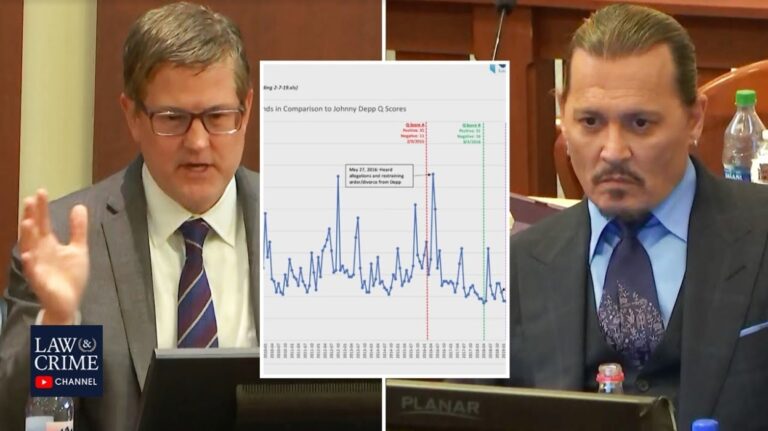Search has evolved to become a powerhouse insights tool that’s credible enough to be used as evidence in a court of law, says Laura Rudd, Head of SEO and Insights at No Brainer.
Boris Johnson and Johnny Depp are search strategists. Yes, you read that right – but just hear me out.
Let’s start with Johnny. We all intently followed his recent ‘duelling defamation’ case with his ex-wife Amber Heard on the back of an op-ed she wrote in The Washington Post – and that it was televised in its entirety across the globe.
Like millions of others, I watched the trial. But there was a particular moment that I could have jumped out of my seat: when Doug Bania took to the stand to testify about the effect that Heard’s op-ed had on Depp’s career. To my utter surprise (and delight), he used Google Trends as the primary data source of his analysis!
As part of Bania’s testimony, he explained that he’d analysed search data both before and after the op-ed. It was fascinating to see (and strangely surreal) to see something that I use every day for my job also being used as vital evidence/testimony in one of the highest-profile cases ever.
Once Depp’s team had finished their questions, it was time for Heard’s team’s cross-examination. They prodded and probed at the data, even asking whether there was a way to understand just how many searches this data represented – I may have leapt up yelling “yes there is!” at that point (whilst simultaneously firing up my keyword research tool).
But it did get me thinking.
The power of ‘search’ is more important than ever – it has evolved to become a powerhouse insights tool that’s credible enough to be used as evidence (a big leap from 15 years ago).
But on the other hand, knowing what I know, it can be manipulated.
While Johnny Depp leveraged search data to prove levels of interest (or search volume) over time, others approach organic search to monitor negative sentiment around a brand, topic or person – then come up with a strategic approach on how to smooth things over by using digital PR, SEO and content.
All to ensure that more positive content ranks on page one, effectively hiding the negative from searchers and even potential buyers. Essentially they’re leveraging Online Reputation Management (or ORM).












